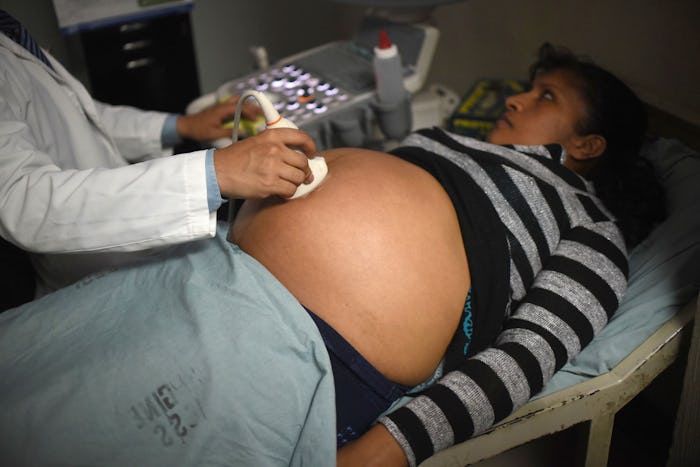Life

Early Signs That Pregnant Women Might Have Zika
Concern surrounding the Zika virus and pregnancy has increased in recent months as the threat of the mosquito-borne illness makes its way into the United States. That threat has only grown with warm, humid weather around the corner. Zika poses the greatest threat to pregnant women — serious birth defects and microcephaly, or unusually small heads, have been linked to the virus — and symptoms can often be confused for a mild case of the flu. However, there are some early Zika signs that pregnant women can look out for if you believe you are at risk.
The tricky part about detecting Zika is that most people won’t even know if they have the disease because they won’t display any of the symptoms. Some of the most common symptoms include fever, rash, joint pain, or conjunctivitis (red eyes). Someone who has Zika might also experience muscle pain and headaches.
Some early signs of Zika in pregnant women include the same — fever, rash, joint pains, or red eyes. If you’ve traveled to a place where Zika is present or has been reported recently, be sure to inform your doctor of where you’ve traveled sooner rather than later. Unfortunately, the Centers for Disease Control and Prevention (CDC) doesn’t know at this time how likely it is that pregnant women who become infected will actually pass on the complications to their fetus.
The World Health Organization (WHO) has concluded that women living in areas where Zika is present should consider delaying pregnancy until there is more known about the virus or a vaccine is discovered. While there is no current cure or vaccine available for public use yet — scientists are already making progress on one — WHO says delaying pregnancy may be the best way to prevent having children who could possibly develop microcephaly.
"Men and women of reproductive age, living in areas where local transmission of Zika virus is known to occur, be correctly informed and oriented to consider delaying pregnancy," the WHO suggests in its new guidelines. "Men and women returning from areas where transmission of Zika virus is known to occur should adopt safer sex practices or consider abstinence for at least 8 weeks upon return."
Last week, the first baby with microcephaly was born in the continental United States at a New Jersey hospital to a Honduran woman who had signs of the virus, such as fever and a rash, but they were initially overlooked by her doctors.
"I told my gynecologist that I had an allergic episode," the woman told Fox News Latino after giving birth. "I think it was because of a mosquito, but I really don’t know."
Zika is expected to make its way into the United States by the summer. So, if you're pregnant make sure to protect yourself from mosquito bites the best you can by wearing long sleeves and using insect repellent regularly. If you find an itchy bite, try to remember to be alert, not alarmed. Moms know best, so if something doesn't feel right, don't hesitate to check with your doctor.